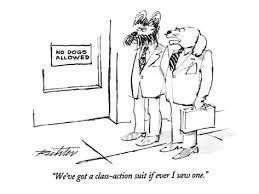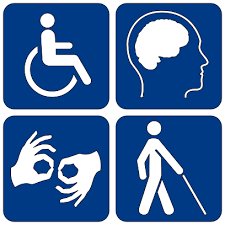 Payday lending has been in the news again, with do-gooders seeking a crack-down. These are businesses making small short-term loans, to mostly poorer people in a fix for cash. Their charges, if calculated as annualized interest rates, might seem exorbitant. What would be reasonable? An 18% limit? On a one week $100 loan at 18%, the business would clear . . . thirty-five cents. Would you make such loans? With all the costs and overheads, rent, wages, etc., all the risks of running a business, handling a lot of cash, in what may be a crime-ridden neighborhood? Plus the risk of non-payment and all the hassles of trying to collect? Do these businesses actually make excessive profits? That we’re never told.
Payday lending has been in the news again, with do-gooders seeking a crack-down. These are businesses making small short-term loans, to mostly poorer people in a fix for cash. Their charges, if calculated as annualized interest rates, might seem exorbitant. What would be reasonable? An 18% limit? On a one week $100 loan at 18%, the business would clear . . . thirty-five cents. Would you make such loans? With all the costs and overheads, rent, wages, etc., all the risks of running a business, handling a lot of cash, in what may be a crime-ridden neighborhood? Plus the risk of non-payment and all the hassles of trying to collect? Do these businesses actually make excessive profits? That we’re never told.
But well-intentioned liberals want to protect the poor from victimization by payday lenders. Put them out of business. So poor people needing quick cash will have no way to get it. Isn’t it great that affluent “progressives” stand up for the disadvantaged?


The Economist recently highlighted another such scam – lawsuits charging businesses with violation of the Americans with Disabilities Act. The ADA rulebook is hundreds of pages, so no business, however well-intentioned, can be in 100% compliance. And Congress, in its wisdom, instead of having a government agency police this, opened it up for private litigation. Maybe the lawyers’ lobbies had something to do with that.

Not surprisingly, some lawyers have gone whole-hog into this ADA extortion racket – filing suits against every business in sight, shaking them down to settle rather than face even costlier litigation. Settlements typically run $3500-7500. But California has special rules even more skewed against businesses, so settlements there run $15,000-20,000. A California judge has ordered a Colorado retailer to pay legal fees likely to exceed $100,000 because its website didn’t accommodate screen-reading software for the blind. (There’s always something.) The Economist says some lawyers file dozens of these cases weekly.
So we target payday lenders, who provide a real service to needy people, but stack the deck in favor of predatory lawyers and against the legitimate businesses they victimize. And we wonder why small business growth in America is way down.

